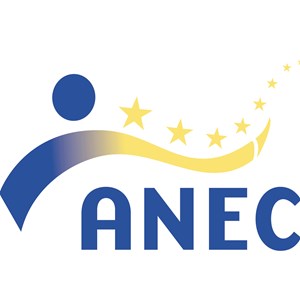NEWS

Models mimic the behaviour of real-world systems by mapping them into mathematical objects. Models give freedom to the mind, allow tampering and testing, playing with what could become real before it has real-world consequences.

As the European Commissioner Thierry Breton said on 7 June during a press event, “It is a great day for consumers and the environment”.

While the legislative process on the proposal for a Regulation laying down harmonised rules on Artificial Intelligence (AI Act) is still ongoing, the European Commission is seeking to speed up the development of standards on AI, with a view to having harmonized standards produced and available by the time the regulation is applicable at the end of 2024/beginning of 2025. To this aim, the Commission issued on 20 May a draft standardization request in support of safe and trustworthy Artificial Intelligence.

New issue of the CEN-CENELEC newsletter 'On The Spot' is out now!

eXtended Reality (XR) is the umbrella for Virtual, Mixed, and Augmented Reality (VR/MR/AR), relating in varying degree from the use of digital overlays to fully rendered immersive alternate views of a physical world, where objects are registered in 3D and user interaction is responsive to the user’s surrounding in real-time. XR is increasingly used in education and training to support learning, practice, or even guide performance.

Data centres have a notoriously high demand of resources: the massively increasing demand for IT services of all kinds continues to lead to rising consumption of (among others) electricity, water and refrigerants. Therefore, it is part of the daily business of a data centre operator to optimise facilities and infrastructures in terms of energy consumption and thus improve the environmental sustainability of the data centre.

The DEFACTO project has a specific objective of making an effective contribution to new standardisation in the batteries sector, especially regarding shortened validation of cell endurance (measurement of functionalities, ageing and safety…) and cell production. This workshop is proposed to meet this objective, and to allow interaction with the project stakeholders so that the knowledge generated in the project is transmitted to the industrial community and the stakeholders can also specify their requirements.

Brussels 24 May 2022 - Nature-based solutions are promising tools to help reduce the impact of climate change and contribute to the EU’s environmental objectives. A stakeholders’ workshop organised by CEN and CENELEC on Monday 23 May explored their many challenges and opportunities and discussed how standardization can support their successful implementation.

CEN and CENELEC welcome the European Commision’s public consultation on the new European Innovation Agenda.

2022 is the European Year of Youth. To celebrate this occasion, CEN and CENELEC are conducting a campaign, presenting a regular series of interviews with young professionals active in European standardization. In the second episode of the series, we get to know Lea Emmel, from Germany.